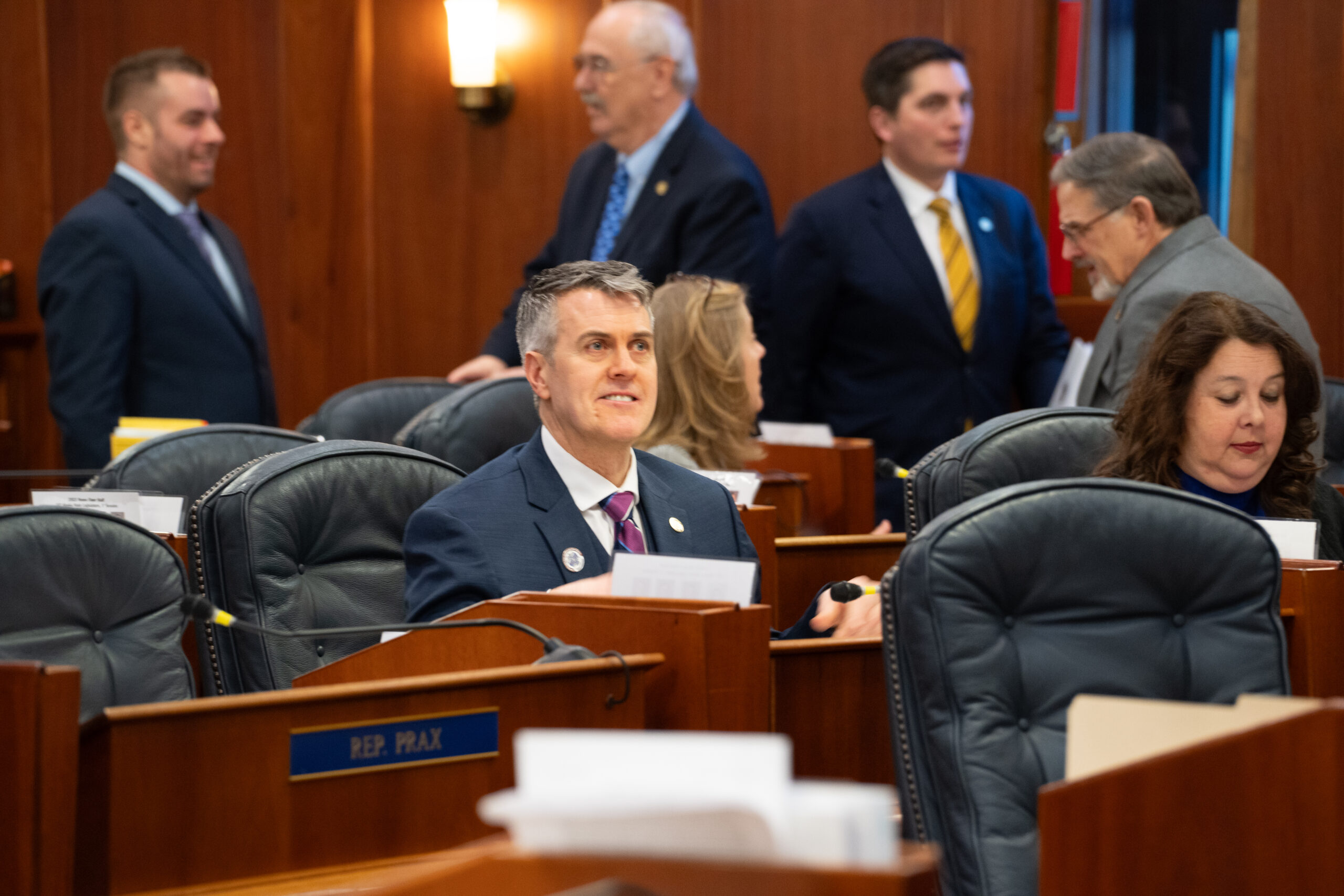
The Alaska House of Representatives on Wednesday approved a proposal that would bar children under 14 from creating social media accounts. The measure came as an amendment to an otherwise unrelated bill that would require adult websites to verify users are 18 or older.
Rep. Andrew Gray, D-Anchorage, said he drew inspiration for the social media measure from an unlikely source — a conservative Republican governor thousands of miles away.
“This amendment is based almost verbatim on a bill signed into law last month in Florida drafted by Gov. Ron DeSantis,” Gray told colleagues during the late-night session. “Verbatim” might be a stretch — the 20-page Florida bill came to the Alaska House as a three-page amendment.
But the concept is the same. The amendment would ban kids under 14 from creating accounts on social media platforms. If the amendment survives the remainder of the legislative process in the House and Senate and is signed into law, 14- and 15-year-olds would need written parental consent to create an account. People under 14 would have their existing accounts deleted.
“According to the US Surgeon General, nearly 40% of children eight to 12 years old, and 95% of children 13 to 17 years old, use social media apps,” Gray said, referencing a 2023 report from the nation’s top doctor. “Teens who spend more than three hours a day on social media double their risk of depression and anxiety.”
And his colleagues agreed. The Alaska House of Representatives approved the amendment in a 27-11 bipartisan vote Wednesday night.
The amendment is attached to a bill that the Republican chair of the House Judiciary Committee, Rep. Sarah Vance, R-Homer, listed as a priority for the last few weeks of the legislative session — a measure that would require adult websites to use a “commercially reasonable age verification method” to ensure users are 18 or older. Similar age verification bills have passed in more than a dozen other states.
Gray is a member of the mostly Democratic and independent House minority caucus, making the sequence of events fairly unusual — typically, when a bill comes to the floor, members of the 23-person Republican-led House majority caucus line up to defend the bill as written.
But every so often, an issue emerges that exposes cracks in the facade. And the social media ban for kids quickly picked up steam.
Soon after Gray introduced the amendment, Rep. Jesse Sumner, R-Wasilla, stood up to support it — it’s similar to a bill sponsored by the House Labor and Commerce Committee, which Sumner leads.
And then, one after another, Democrats and independents came out in favor of the social media limits.
“I think that kids need to be given their lives back and to get to know one another in their own neighborhoods, and to have their innocence restored,” said Rep. Andy Josephson, D-Anchorage.
“As a mom, I am horrified thinking about my kids being on social media or the internet one day. I think looking out for our kids is not a partisan issue,” said Rep. Jennie Armstrong, D-Anchorage, who also praised DeSantis for “taking the lead on this” issue.
Some of the youngest House lawmakers, though, were split. Rep. Geneveive Mina, D-Anchorage, age 28, recalled encountering troubling content on the bizarro imageboard 4chan as young as 10 years old. She spoke in support of limiting kids’ social media use.
“I don’t usually say that I’m an expert on anything, but I feel like I’m an expert on being a girl on the internet,” Mina told her House colleagues. “I’ve lived this, right? And I think there’s a really important nuance in this conversation when we’re talking about social media and the role that it plays in young women and young girls and the impacts on mental health.”
But Alaska’s youngest sitting lawmaker spoke out against the ban. Twenty-six-year-old Rep. CJ McCormick, D-Bethel, recalled how social media helped him keep in touch with family — and played a key role in pressuring rap star Kendrick Lamar into following through on a promise to visit Bethel after students won a college-prep contest.
“Unfortunately, Kendrick Lamar didn’t want to come out to Alaska, so all we got was a Skype call. But thanks to some rambunctious student council members, we decided to make quite a media storm on Twitter,” McCormick said.
The social media campaign “caught the attention of Taco Bell, who then brought us [NBA star] James Harden, [MTV personality] Sway Calloway, and then it just turned out that Kendrick Lamar was performing at the State Fair, and he actually surprised us and showed up,” he continued.
Rep. David Eastman, R-Wasilla, raised free speech concerns, saying he was concerned the limits on social media were written so broadly that they would keep kids off broad swaths of the internet that allow user-generated content, from Amazon reviews to Google Docs to comments on news websites. Eastman also said age verification requirements could lead websites that don’t want to comply to exclude Alaskans of any age.
Federal judges have blocked similar laws targeting children’s use of social media in Arkansas and Ohio.
Others speaking against the bill, including Vance, the sponsor of the underlying age verification bill, said they were concerned the social media limits hadn’t been studied closely enough by lawmakers.
“The idea may be merited, but the details of the bill have great importance,” Vance said. “We’re not here to pass ideas. We’re here to pass good laws.”
But many of her colleagues rebuffed Vance’s request for more time and the amendment passed with significant bipartisan support. The House is, for now, scheduled to take a final vote on the combined age verification/social media measure on Friday.
Eric Stone covers state government, tracking the Alaska Legislature, state policy and its impact on all Alaskans. Reach him at estone@alaskapublic.org.




